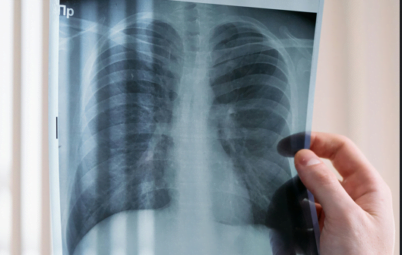Millions of NHS patients could soon receive quicker and more accurate diagnoses of cancer and chronic diseases such as diabetes, thanks to a pioneering artificial intelligence (AI) screening platform. The new system, currently under development, promises to unite computer systems across NHS trusts into a single platform. By doing so, it will allow hospitals and GP surgeries to access cutting-edge AI tools capable of analysing scans, X-rays, and mammograms faster than ever before. AI could not only help with early detection but also prevent litigation for late detection of cancer claims or misdiagnosis of cancer compensation by patents who have been failed.
Contact Us Now To ClaimFor patients and families affected by delays, this breakthrough could mark a turning point. Early detection often means more effective treatment, improved survival rates, and a reduced burden on the healthcare system.
The New NHS AI Screening Platform
The platform, known as AIR-SP, is being developed by NHS England with funding from the National Institute for Health and Care Research (NIHR). It represents a GBP 6 million investment in modernising NHS screening services.
Historically, AI diagnostic tools had to be installed individually at each hospital trust. This fragmented system slowed down adoption and made it costly for hospitals to access the technology. AIR-SP solves this by providing a centralised “cloud” system where approved AI tools can be rolled out across the country.
The platform is expected to be operational by 2027, and ministers have hailed it as a vital step in making the NHS fit for the 21st century.

AI in Cancer Detection
Artificial intelligence has already shown remarkable promise in detecting cancers at an early stage. Examples include:
- Chest X-rays: AI systems can scan and flag early signs of lung cancer, helping radiologists prioritise high-risk patients.
- Skin cancers: AI can analyse photos of moles and skin lesions, distinguishing between benign and malignant growths with comparable accuracy to dermatologists.
- Breast cancer screening: One of the most ambitious trials linked to AIR-SP will involve 700,000 women in England. The trial will test whether AI is as accurate and reliable as radiologists in reading mammograms and identifying early-stage breast cancer.
Simon Vincent, chief scientific officer at Breast Cancer Now, stressed the urgency of progress: “Currently, 11,500 tragically die from breast cancer each year in the UK. Breast screening is a key tool for detecting breast cancer early, and the sooner it’s diagnosed, the more likely it is that treatment will be successful.”
Benefits for Patients and the NHS
The government and NHS leaders expect several major benefits:
- Faster diagnosis – AI can process scans in seconds, speeding up the time patients wait for results.
- Reduced delays – By lowering the cost and complexity of installing AI tools, hospitals can adopt new technology more quickly.
- Improved productivity – With AI handling large volumes of scans, radiologists and clinicians can focus on more complex cases.
- Nationwide consistency – A unified platform ensures all NHS trusts have equal access to the same advanced tools.
Wes Streeting, the Health Secretary, described it as an “AI revolution” that will give staff groundbreaking tools to treat patients quicker and more effectively.
The Role of Research and Trials
Professor Lucy Chappell, chief executive of the NIHR, emphasised that the platform’s purpose is not only to diagnose patients faster but also to provide the digital infrastructure needed for robust AI trials.
“This unified AI research screening platform will help us to understand how AI can safely and effectively improve patient care,” she explained. “It will also speed up the time it takes to set up AI research studies while reducing costs.”
This dual purpose — improving care while testing safety and reliability — ensures patients can trust that AI tools are being carefully validated in real NHS settings.
AI and Delayed Cancer Diagnosis Claims
While the NHS is making strides in technology, delays in diagnosis remain a devastating reality for many patients. When cancers are not identified in time, the outcome can be life-changing, and in some cases, fatal.
If you or a loved one has been affected by late diagnosis, you may be entitled to make a claim. At Hutcheon Law, we specialise in supporting patients and families through delayed cancer diagnosis claims page. Early detection is critical, and legal action can help secure compensation and accountability when delays occur.
Conclusion AI and late diagnosis of cancer claims
The NHS AI screening platform marks a bold step forward in using technology to improve healthcare outcomes. By centralising AI tools and making them accessible across the country, the NHS hopes to reduce waiting times, improve early detection of cancer and diabetes, and strengthen trust in screening services.
For patients, this innovation represents hope — hope that cancer will be caught earlier, treatments will be more effective, and families will face less uncertainty in the face of serious illness.



